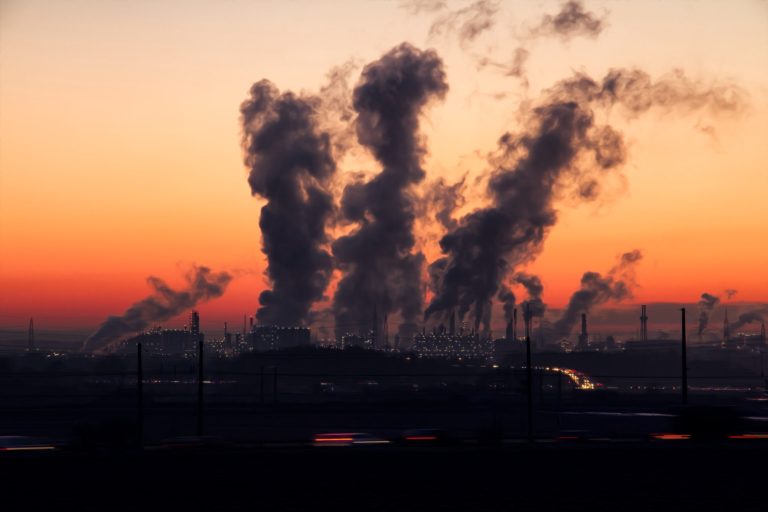Blog 19.10.20 Off target: World Bank’s fossil fuel addiction keeps energy poor countries in the dark
19 October 2020
The world is faced with an accelerating climate crisis. People who live in poverty in low and middle-income countries have contributed the least to climate change, yet they are the most vulnerable to its impacts. They are often directly dependent on natural resources to sustain their livelihoods. The impact of climate change is already putting a stress on these resources. Food shortages, increased food prices and lack of access to water are just some of the consequencesof extreme weather events, such as drought and flooding.
The core of the climate crisis is the energy sector´s burning of fossil fuels, since it is the largest contributor to GHG emissions. A rapid and just transformation of the energy sector, from fossil fuels to renewable energy, is needed to combat climate change. At the same time, the transformation must meet the needs of nearly one billion people — mostly concentrated in Sub-Saharan Africa and South Asia — that still live without access to electricity and hundreds of millions more living with unreliable or expensive, unaffordable electricity.
Poverty reduction, energy access goals and climate goals are inextricably linked and require urgent and bold action. Given the World Bank Group’s (WBG) mandate to eradicate extreme poverty, it is important to assess how the development institution approaches energy access and climate goals and whether it is taking the urgent actions needed to address both. A new paper by Recourse, Swedish Society for Nature Conservation (SSNC) and the African Coalition for Sustainable Energy and Access (ACSEA) provides a summary of assessments done on WBG energy sector assistance to three high energy deficit countries facing significant climate change threats: Nigeria, Mozambique, and Myanmar.
Nigeria has over 87 million people living without access to electricity; Mozambique has over 22 million; and Myanmar has more than 35 million.

Nigeria has over 87 million people living without access to electricity; Mozambique has over 22 million; and Myanmar has more than 35 million.
The main finding of the new paper is that the World Bank Group is too addicted to the fossil fuels and is failing to elevate from energy poverty millions in the three countries where the paper focuses.
Some of the key findings of this paper are:
§ Rate of electrification is inadequate to reach universal access by 2030: the number of new household connections the WBG operations plan to achieve compared to the national electrification targets of the three countries to be reached by 2020–23 falls way short. Nigeria comes up way short of its goal — 9.4 million households short. While, Mozambique is over 925,000 short and Myanmar is approximately 500,000 households short. Furthermore, the WBG assistance provided is uneven for mini- and off-grid renewable energy solutions required most to provide access to those without access to energy.
§ WBG prioritizes fossil fuels over renewable energy: instead of prioritizing finance for renewable energy, the WBG’s assistance firmly places fossil fuels as the priority. In Nigeria, WBG finance was 5 times higher for fossil fuels than for renewable energy. Most alarming is the WBG’s insignificant support for renewable energy in Mozambique, where fossil fuels receive 16 times more funding. Furthermore, World Bank technical assistance in Myanmar advised the government to prioritize the creation of a master gas development plan ahead of solar or wind development plans. In Mozambique, WBG policy assistance supported tax breaks for coal and gas.
§ WBG focuses on gas expansion: the WBG’s focus on significantly expanding gas operations in all three countries neglects climate risks and problems of affordability, especially for the poor. Moreover, in Myanmar and Mozambique the WBG is providing significant assistance to liquefied natural gas (LNG). LNG processing is energy-intensive and as such, greenhouse gas (GHG) intensive, certainly not low-carbon.
§ WBG facilitates high-GHG development path, non-alignment with Paris Agreement: the three country assessments clearly demonstrate the WBG’s untethered support for fossil fuels, while significant renewable energy solutions remain under-developed and under-funded.
Given the WBG’s warning that without urgent action, climate change impacts could push an additional 100 million people into poverty by 2030, no WBG public assistance should be used to develop fossil fuels.
The WBG’s finance directed at new household connections represents a relatively small percentage of overall energy sector finance in a given country (10% in Mozambique). The WBG can and should direct more finance to connections. A 10-year WBG funding commitment needs to be reflected in updated Bank country strategies for each country.
With the vast majority of people without energy access living in rural communities, the WBG needs to exponentially scale up funding for mini- and off-grid renewable energy solutions across all high energy deficit countries. Furthermore, given that the electrification rate is inadequate, the WBG should assist the governments to identify where gaps exist and how the gaps will be addressed in order for them to achieve annual electrification targets necessary to reach universal access by 2030.
Endnotes
Link to new summary paper: https://www.re-course.org/wp-content/uploads/2020/10/Assessing-the-World-Bank’s-contributions-to-Climate-Goals-and-Energy-Access-Nigeria-Mozambique-and-Myanmar-web.pdf
Myanmar Report: https://www.re-course.org/wp-content/uploads/2019/10/Too-high-a-price-for-the-poor-and-climate.pdf
Nigeria Report: https://www.re-course.org/wp-content/uploads/2020/06/The-World-Bank-Failing-Nigeria-on-Climate-Goals-and-Energy-Access_Final.pdf
Mozambique Report: https://www.re-course.org/wp-content/uploads/2020/09/World-Bank-prioritizes-Fossil-Fuels-and-Energy-Exports-instead-of-Renewables-and-Energy-Access-in-Mozambique-3.pdf
This blog was originally published here: https://medium.com/@nezir.sinani/off-target-world-banks-fossil-fuel-add…

